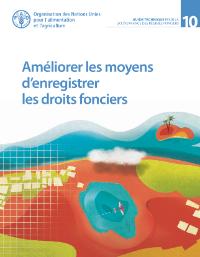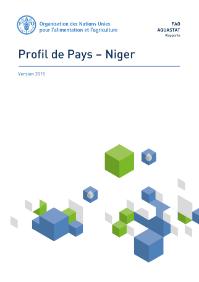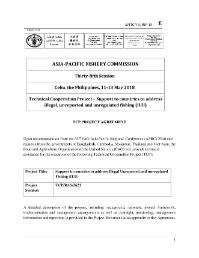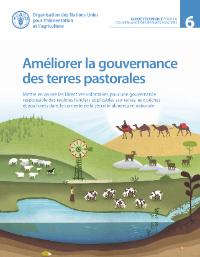Focal point
Location
The Food and Agriculture Organization of the United Nations leads international efforts to defeat hunger. Serving both developed and developing countries, FAO acts as a neutral forum where all nations meet as equals to negotiate agreements and debate policy. FAO is also a source of knowledge and information. We help developing countries and countries in transition modernize and improve agriculture, forestry and fisheries practices and ensure good nutrition for all. Since our founding in 1945, we have focused special attention on developing rural areas, home to 70 percent of the world's poor and hungry people.
Members:
Resources
Displaying 421 - 425 of 5074Améliorer les moyens d'enregistrer les droits fonciers
Ce guide fournit des conseils pratiques pour améliorer les méthodes actuelles d’enregistrement des droits de manière à ce que les protections et les avantages offerts par les systèmes d’enregistrement puissent être accessibles à tous sans discrimination. Ce guide fait partie d’une série de guides techniques apportant des conseils sur les différentes façons d’améliorer la gouvernance foncière, conformément aux Directives.
Profil de Pays – Niger
Ce profil de pays décrit l’état des ressources en eau et l’utilisation de l’eau, ainsi que l’état de la gestion de l’eau agricole dans le Niger. L’objectif de cette monographie est de décrire les particularités du pays et les problèmes rencontrés dans le développement des ressources en eau et de l’irrigation en particulier.
Technical Cooperation Project – Support to countries to address illegal, unreported and unregulated fishing (IUU). Thirty-fifth session of the Asia-Pacific Fishery Commission (APFIC)
Meeting Name: Asia-Pacific Fishery Commission (APFIC)
Meeting symbol/code: APFIC/18/INF-10
Turkey and FAO
The partnership between FAO and Turkey has thrived since the establishment of the country office in 1982 and the Subregional
Office for Central Asia in 2007 in Ankara. Through the FAO-Turkey Partnership Programme and FAO-Turkey Forestry Programme,cooperation continues to prosper. The country has benefited from wide-ranging assistance from FAO and it is also an activeresource partner, providing indispensable technical and financial support to FAO activities, particularly within the subregion.Améliorer la gouvernance des terres pastorales
Les Directives volontaires pour une gouvernance responsable des régimes fonciers applicables aux terres, aux pêches et aux forêts dans le contexte de la sécurité alimentaire nationale mentionnent de manière explicite les éleveurs nomades comme utilisateurs des Directives et comme cibles du renforcement des capacités. En dépit de la marginalisation historique des éleveurs nomades, souvent encore d’actualité aujourd’hui, ce guide technique a été élaboré en réponse aux possibilités qui sont en train d’émerger pour appuyer les pasteurs et renforcer leurs droits aux terres et aux ressources.











